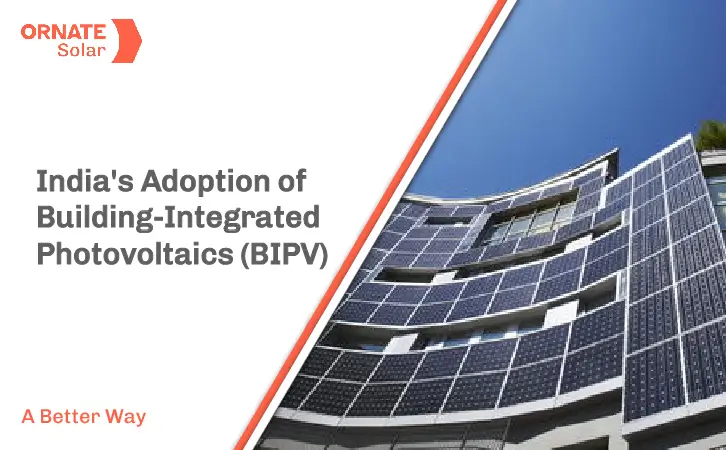

Building-integrated photovoltaics (BIPV) is a revolutionary technology that blends the generation of clean energy with architectural aesthetics. With its immense potential, BIPV can offer a sustainable energy solution for a country like India that receives abundant sunlight. While the implementation of this technology in India is still in very early stages compared to global standards, there are various projects that are setting a benchmark in integrating solar energy technology into building structures.
Before discussing the key BIPV projects in India, let’s discuss some key criteria for BIPV systems for their efficient functioning:
1. Energy Efficiency:
- The PV panels used should have high energy conversion efficiency to optimize the energy output with limited area.
- The panels should be oriented and titled in a way to ensure maximum exposure to solar radiation.
- Effective thermal management is necessary to dissipate the heat generated by the panels for the longevity and comfort of the building occupants.
2. Based on rotation
- BIPV modules must meet the fire safety standards to prevent any miss happening.
- They must be durable enough to withstand extreme weather conditions.
- They must bear the structural loads as per the building codes.
3. Architectural Integration
- BIPV modules should complement the design and aesthetics of the building. This includes color, shape, and overall visual integration.
- There must be a seamless integration of modules with the building’s structure.
Besides the above criteria, BIPV should be economically viable in the long run with minimal maintenance cost. Their integration must not hamper any future scalability, if required and they should offer flexibility for varying architectural needs.
Now, let us explore some key projects in India that have used BIPV in their buildings, showcasing their contribution towards taking India to a greener future
1) Indira Paryavaran Bhawan, New Delhi
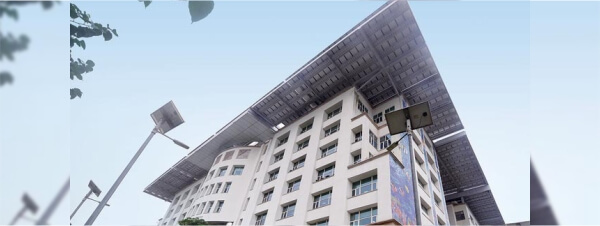
Indira Paryavaran Bhawan is a shining example of BIPV in India. Housing, Ministry of Environment, Forest and Climate Change, this is India’s first net-zero energy building with an annual consumption of 14.21 lakh kWh balanced by on-site Solar BIPV generation of 14.3 lakh kWh, making it one of the few fully multifunctional buildings.
It produces enough renewable energy to meet its energy consumption requirements annually. The building integrates solar panels into its facade and rooftops, which in addition to generating power, also emphasizes the Indian government’s commitment to sustainable building practices. It has been designed, in a way that reduces solar heat gain and enhances energy efficiency.
2) Suzlon One Earth, Pune

Suzlon’s Energy Limited’s headquarter, known as One Earth in Pune, is a fine example of a sustainable architectural design. This building is LEED Platinum-rated and uses BIPV technology alongside other renewable resources to power itself. This building uses 128 Building Integrated Photovoltaic (BIPV) panels, each 105 watts, which boasts a total capacity of 13.44 kW.
Solar panels are a part of One Earth’s structure, making it a self-sustainable complex. It serves as a great example for corporate offices looking to embrace this technology.
3) Rajiv Gandhi International Airport, Hyderabad

Another notable example of using solar power, including BIPV systems, is the international airport of Hyderabad. This project is part of a larger plan within Indian airports to adopt greener technologies and reduce operational carbon footprints.
4) CeNSE Building, Indian Institute of Science, Bangalore

The Centre for Nano Science and Engineering (CeNSE) at the Indian Institute of Science (IISc) in Bangalore came to the limelight with its use of BIPV, showcasing its capability to not only research but also adopt the outcomes. This building apart from utilizing integrated solar panels for energy generation also serves as a research facility for studying and developing newer BIPV technologies. It is a perfect example of the coherence between architectural design, sustainability, and academic research.
5) Kolkata International Airport, Kolkata

Adding to the list, one of the major hubs in Eastern India, the Netaji Subhas Chandra Bose International Airport in Kolkata has adopted BIPV to reduce its environmental impact. The airport has solar panels installed across the roofs and it integrates BIPV methods to support its vast energy needs. In addition to cutting down the carbon footprint, this initiative also demonstrates how large public infrastructures can use renewable energy technologies effectively.
6) U-Solar CtrlS Data Center in Mumbai
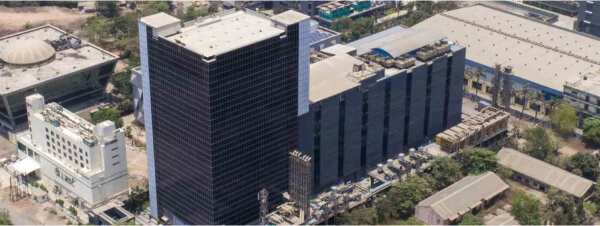
In 2019, U-Solar Clean Energy Solutions Pvt. Ltd. installed India’s largest BIPV system on this data center, covering over 50,000 square feet of facade area with a capacity of about 1 MW.
The vertical building-integrated solar power (BIPV) system is estimated to prevent CO2 emissions equivalent to almost 7,000 trees per year.
7) Sahibabad Railway Station

Indian Railways and Central Electronics Limited, Sahibabad, recently commissioned India’s first BIPV Solar Power Platform at platform number 1 of Sahibabad Railway Station.
The Solar Power Plant at Sahibabad station boasts a capacity of 729 kW, powered by 1620 high-efficiency solar panels.
The pace at which many major buildings are adopting this technology suggests that this list is going to grow exponentially in the coming years. From governmental buildings and airports to educational institutes and corporate headquarters, BIPV is making its mark as a viable and effective solution for energy generation and architectural design.
About Ornate Solar
Ornate Solar is a leading solar company with 10 years of experience in the industry and the mission to reimagine the way solar is installed worldwide.
By not only partnering with the best-in-class solar brands but also developing our high-quality solutions, (panels, solar inverters, accessories, InRoof), we develop and deliver solutions that are modern, reliable, and effective.
If you are looking for high-quality solar solutions, reach out to us at 1800 2026 252 to discuss your options.


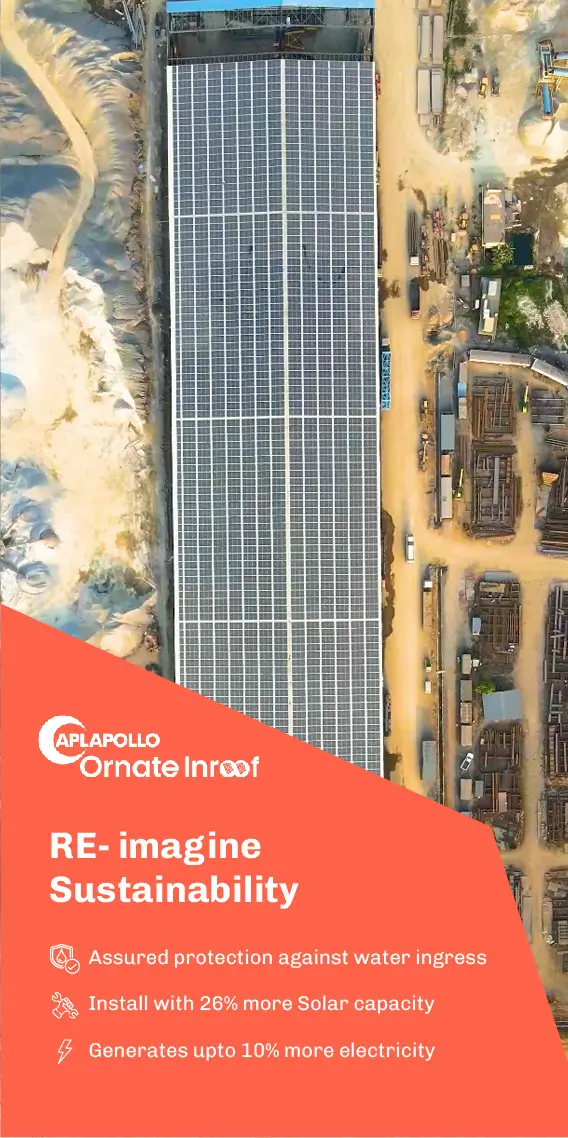
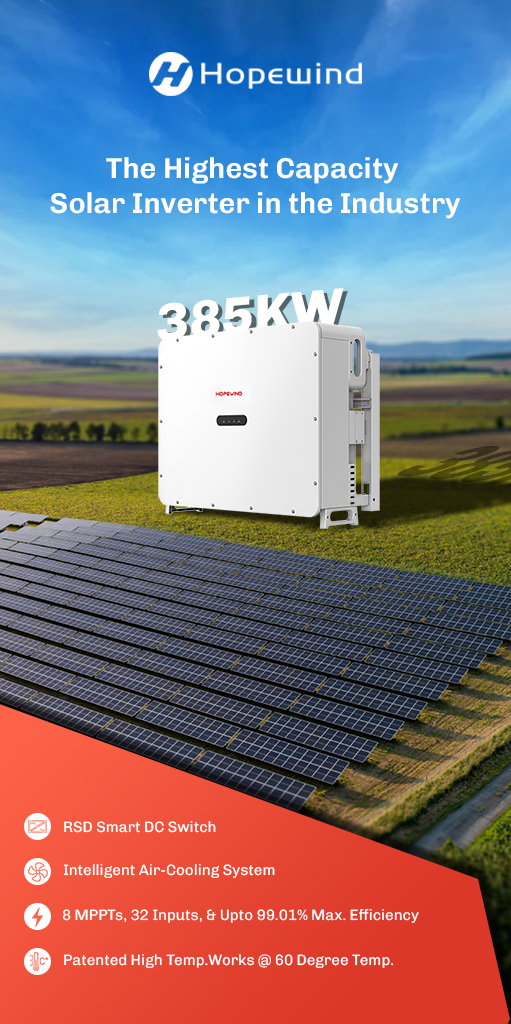


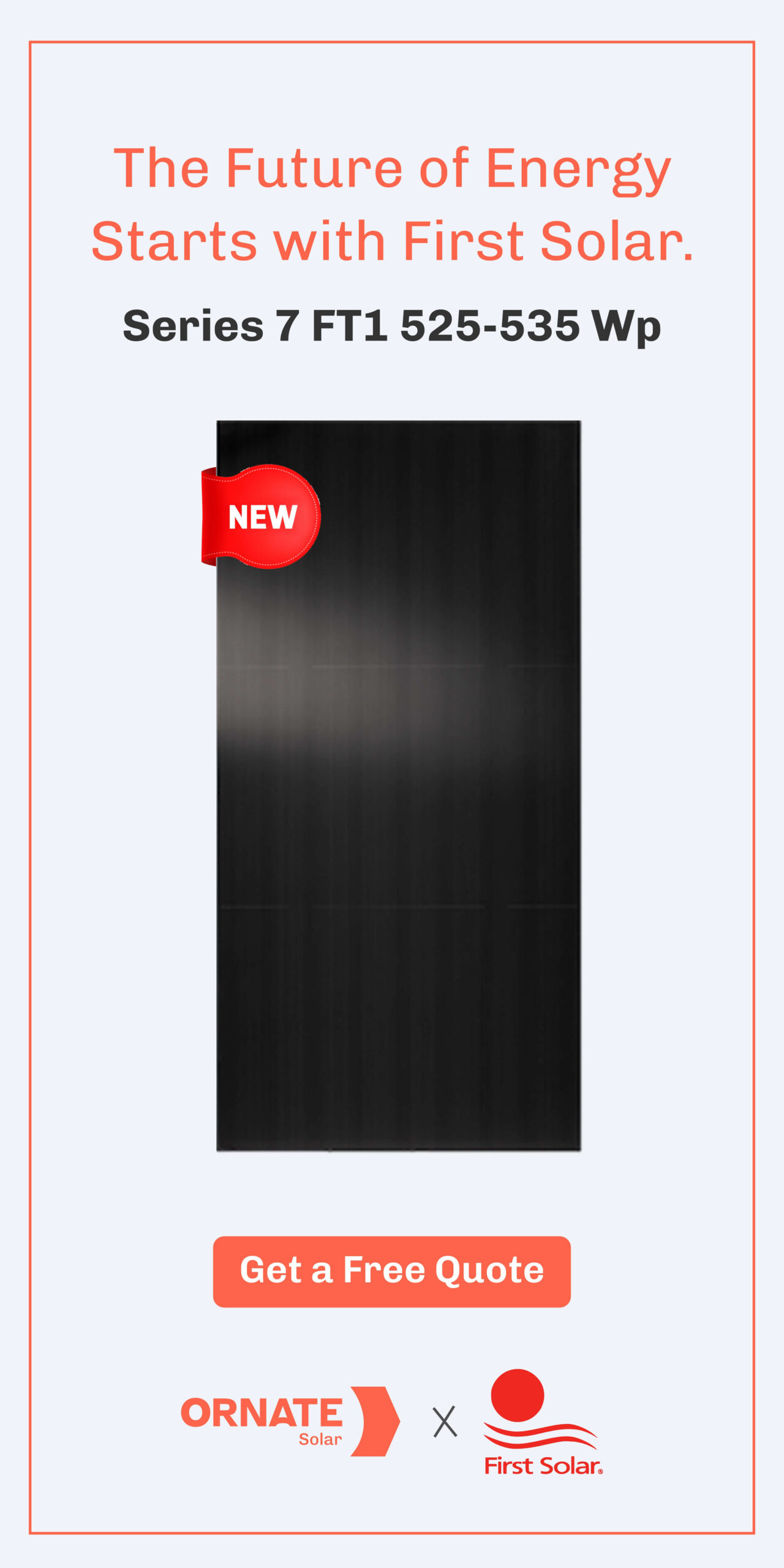

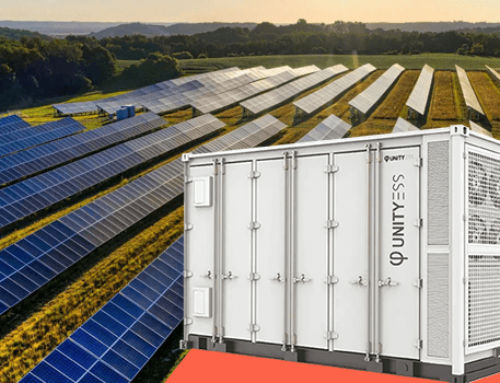
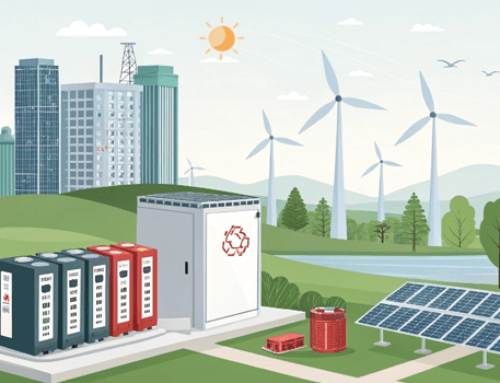
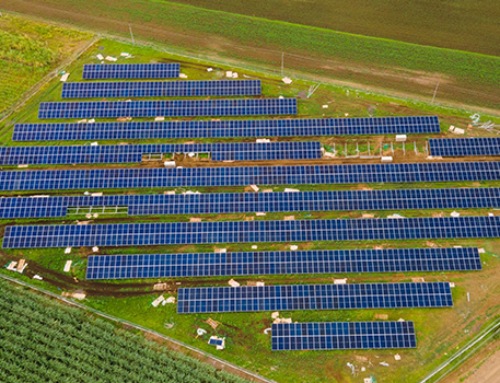

Leave A Comment